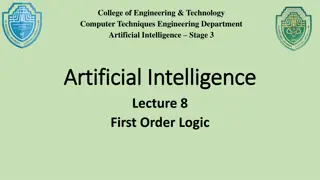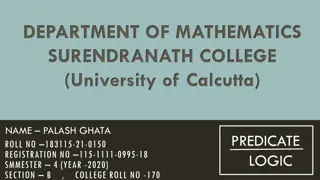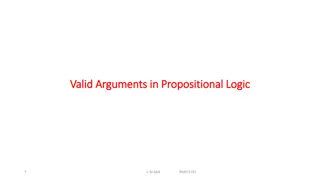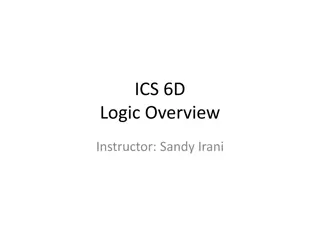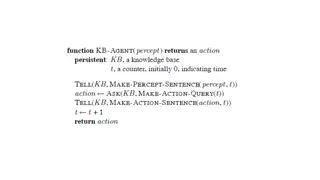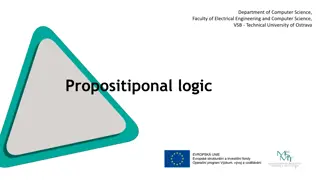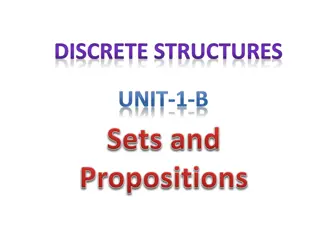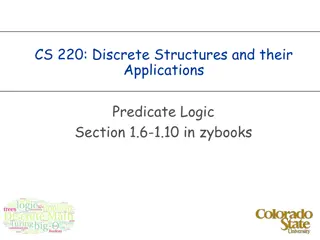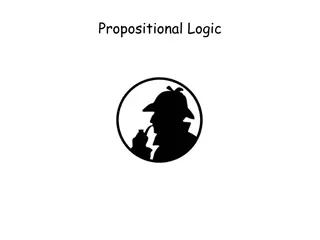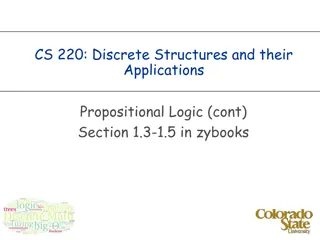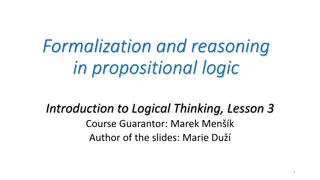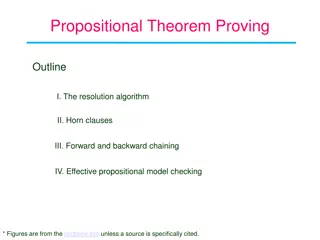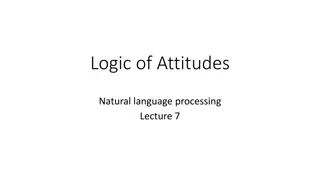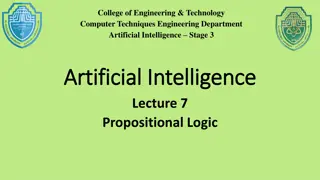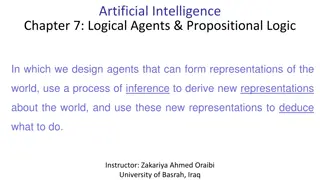Applications and Equivalences in Propositional Logic
This lecture explores applications of propositional logic, including translating sentences, system specifications, logic puzzles, and logic circuits. It also defines tautology, contradiction, and contingency as types of compound propositions, along with logical equivalences. Examples and illustrations are provided to enhance understanding.
Download Presentation

Please find below an Image/Link to download the presentation.
The content on the website is provided AS IS for your information and personal use only. It may not be sold, licensed, or shared on other websites without obtaining consent from the author. Download presentation by click this link. If you encounter any issues during the download, it is possible that the publisher has removed the file from their server.
E N D
Presentation Transcript
Discrete Mathematics Lecture 3: Applications of Propositional Logic and Propositional Equivalences By: Nur Uddin, Ph.D 1
Applications of Propositional Logic 1. 2. 3. 4. 5. Translating sentences System specification Boolean search Logic puzzles Logic circuits 2
Applications of Propositional Logic 1. Translating sentences Example: You can access the Internet from campus only if you are a computer science major or you are not a freshman. 3
Applications of Propositional Logic 2. System specification Example 1: The automated reply cannot be sent when the file system is full Example 2: 4
Applications of Propositional Logic 2. System specification Example 2: 5
Applications of Propositional Logic 3. Google search is the example Boolean search 6
Applications of Propositional Logic 4. Logic Puzzles Example: In [Sm78] Smullyan posed many puzzles about an island that has two kinds of inhabitants, knights, who always tell the truth, and their opposites, knaves, who always lie. You encounter two people A and B. What are A and B if A says B is a knight and B says The two of us are opposite types? 7
Applications of Propositional Logic 5. Logic circuits 8
Propositional Equivalences Definition A compound proposition that is always true, no matter what the truth values of the propositional variables that occur in it, is called a tautology. A compound proposition that is always false is called a contradiction. A compound proposition that is neither a tautology nor a contradiction is called a contingency. 9
Logical Equivalences Compound propositions that have the same truth values in all possible cases are called logically equivalent. The compound propositions p and q are called logically equivalent if p q is a tautology. The notation p q denotes that p and q are logically equivalent. 10
Logical Equivalences Example: 12
Propositional Satisfiability A compound proposition is satisfiable if there is an assignment of truth values to its variables that makes it true. Example: Check satisfiability of the following compound propositions a. (p q) (q r) (r p) b. (p q r) ( p q r) c. (p q r) ( p q r) When we find a particular assignment of truth values that makes a compound proposition true, we have shown that it is satisfiable; such an assignment is called a solution of this particular satisfiability problem. 15


